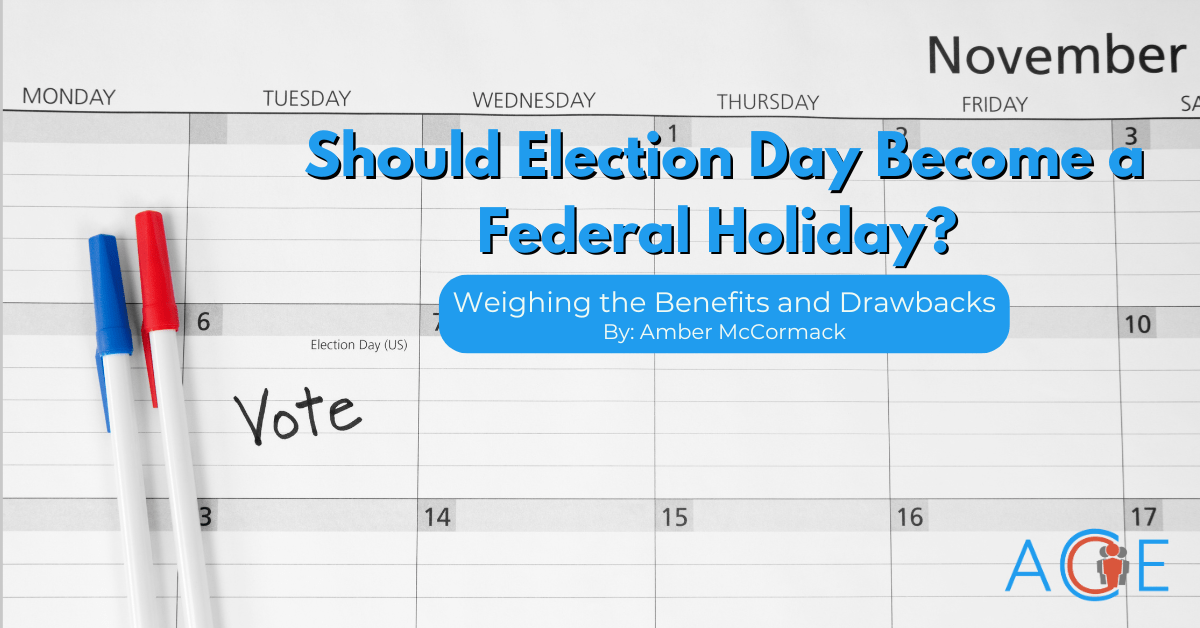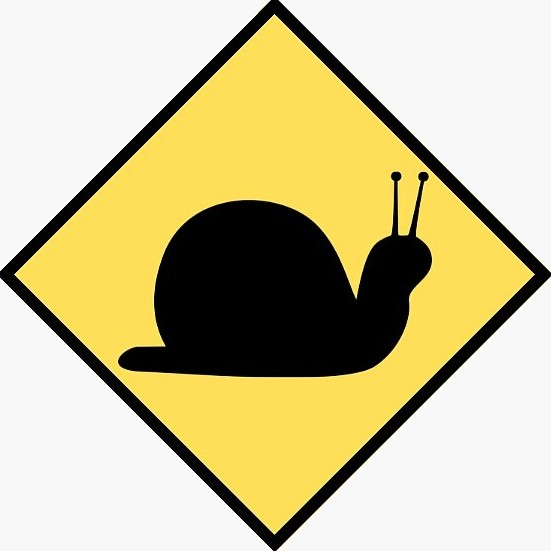Is it time to make Election Day a federal holiday? 🗳️ Some say it would boost voter turnout and align the U.S. with other democracies, while others argue it could create challenges for hourly workers and cost millions. Dive into the debate over whether a federal voting holiday is the best way to strengthen democracy or if there are better solutions. Check out the full breakdown!
this is the pinnacle of stupid writing. Calling this “Research” is nonsense. You should have the day off if you have an “I voted” sticker. Not only should election day be a day off but so should:
- Primaries
- Special Elections
- Voter Registration deadlines.
So many things to fix about our broken democratic institutions. Every state should have mail-in voting as well as early voting. Every state should automate the registration of voters as much as possible as well. And sure, election day should be a federal holiday, or moved to Sunday or Saturday, at least.
Other things to work on: ranked choice voting and getting rid of the nasty racist holdover that is the EC. Also, we need to remove the special privileges that rural land has over people. Way too many ways our current system gives remote areas more representation than they should have…
Good points except for Ranked Choice. That archaic voting system is a sort of poison pill.
It doesn’t actually solve any of the problems proponents claim it does, and it adds complexity and additional points of failure. It was designed in 1788, but rejected for use in France at the time due to the habit of eliminating the Condorcet winner. (The person who would win in a one on one election vs all other candidates)
The bad idea was then reinvented in the early 1800s as the Single Transferrable Vote, with no fixes for that pesky Condorcet issue.
No, the way to go is either the simplicity of Approval, or the more granular STAR. (STAR is the new hotness, designed this century, with the pitfalls of past systems in mind)
Both systems are completely immune to the Spoiler effect while also allowing, or even encouraging the growth of third parties.
Specifically, which problem do you think that ranked choice proponents are incorrect about?
Ranked choice voting does one thing, allows people to vote for the candidates they actually want and that’s it. All kinds of people try to shoehorn in other ideas, but at the end of the day the one and only problem its intensed to solve is people having to vote for candidates they don’t like.
See, it’s that one thing you mentioned.
The voting for the candidates people actually want.
That’s what it doesn’t actually do.
What Ranked Choice actually does is remove non-viable third parties from the election. That’s it. You can throw a sympathy vote over to the third party of your choice, but the next line on the ballot will be the major party candidate, because you certainly don’t want the other side to win. Say you throw a vote for the Greens, but your next choice is going to be the main ticket Dem, or else you risk the Republicans winning.
The problem comes when that third party just reaches viability. See, if the Greens are eliminated first, all the votes on the ticket then go to the Dem, but if somehow the Greens slip past the Dems, then the Dems are eliminated first, and the Dem first voters likely didn’t list the Greens as their next choice.
And here’s the thing. Republicans know that if the Greens knock out the Dems, then Republicans win. So a chunk of the Republican base strategically vote for the Greens as their first choice, and Republican as their second. And by lowering the support for their own candidate, they’ve secured the election for that candidate. This is the only voting system in existence that lets you show less support to a candidate to help that candidate win.
Tell me that shit isn’t broken, and I’ll call you a liar.
And that’s just one of a dozen show stopping faults in that voting system.
The next is ballot exhaustion.
If you rate A then B then C, but they get knocked off the ballot B then C and then A, your votes for B and C are thrown out completely. So if literally every single vote listed B as their second choice, B would be eliminated even if they were universally acceptable to the voting public. But it doesn’t matter, they were eliminated in an earlier round so universal support just isn’t looked at.
And finally, what’s the little issue of the rankings themselves. All we know is that you prefer A to B, and B to C. But how much do you actually prefer A to B by. and is that the same amount that you prefer B to C by.
Do you rate A and B as mostly the same but then rate C as a sort of horrible monster who you only begrudgingly support? We don’t know because that info isn’t collected on the ballot. STAR fixes that one, each candidate can have the same score in STAR, and with the scale going 0-5 you can get somewhat granular with your preferences.
deleted by creator
I do understand Ranked Choice, and understand that it’s actually worse than our current system except for one small area. And that’s the elimination of non-viable spoiler parties.
Ranked Choice eliminates them from consideration.
As to its real world application, Ranked Choice is constantly fucking up elections.
https://electowiki.org/wiki/2009_Burlington_mayoral_election
If you’ll notice in that breakdown, the number of exhausted ballots was twice the margin of victory.
All this stems from the fact that RCV is really just First Past the Post, but done a bunch of times on a single ballot.
You cannot solve the problems of plurality by iterating plurality.
It’s a bad system that is, in many ways, worse than the one we already have.
My impression is that when most people mention “ranked choice” voting, what they really mean is “ranked choice voting with instant runoff” which is functionally identical to STAR voting.
The two are not functionally identical at all.
Ranked Choice is a broken Ordinal voting system.
All Ordinal voting systems are flawed, because when you have to rank A over B, you will eventually reach a point where C can become a spoiler candidate.
Cardinal voting systems are immune from this, because you rate the candidates independent of each other. It doesn’t matter how many candidates are on the ballot, because you’re rating them vs your support, not their rank vs each other.
Cardinal systems allow you to rate two candidates the same, either with full support or full disdain.
Do you have a link that explains what you’re talking about? I’m having a hard time reconciling my understanding of Ranked Choice (with instant runoff) with the downfalls you describe.
Edit: I came across this: https://betterchoices.vote/Cardinal It explains the spoiler problem with Ordinal voting systems, but also illustrates problems with Cardinal voting systems. Interesting stuff.
I’m so glad I found this site! I think I’ve been converted to a Consensus Voting proponent instead of Instant Runoff.
You can read more about it here: https://betterchoices.vote/ConsensusVoting
Ahh, the bullshit “bullet voting” nonsense.
That’s a sort of made up problem with cardinal systems that ignores one tiny little issue. Approval, is a Cardinal voting method that is 100% bullet voting, because there’s no scale. Just a simple yes and no per candidate.
It gives better results than every single Ordinal system.
These geeks study election systems in far too much detail. And have a handy little chart of Baysian Regret Basically they did math and computer shit to figure out how “happy” people would be with the results of a set number of simulated elections with roughly identical factors except the voting system used and how honestly vs strategic you are in your voting,
Approval, which is 100% bullet voting, and still comes out better for overall satisfaction of results than its closest Ordinal competitor.
Consensus is just Condorcet voting. Technically, Approval is Condorcet compliant. It might actually be the only true way to find the Condorcet winner.
Anyway, there’s more, and I should link more.
How do you counter the arguments about strategic votes in Cardinal voting systems? Those arguments are explained here: https://betterchoices.vote/Cardinal
Put simply, Approval is still subject to strategic voting that undermines the purpose of the system. In practice, nobody is going to approve of a centrist candidate from the other party because that approval vote might be the only reason that their party loses.
Strategic voting in cardinal systems is just voting.
You have to decide if you like someone enough to vote for them or not.
Unlike Ordinal voting systems where you must rank someone above or below someone else, Cardinal systems count votes for candidates independently of each other.
Your main avenue for strategy is deciding if you support someone or not. Being honest is best, but at times you might decide to include someone who you don’t necessarily love, but find acceptable.
So, your example of the centrist. You might feel like they have a chance of beating someone worse, and thus you can mark yes on them. That doesn’t negate the yes you gave to the candidate you actually love.
And if your guy doesn’t win, well, that’s an election. Sometimes your side loses, and nothing you do can change that. I will say, under Approval or STAR, you literally cannot cause your side to lose by supporting them.
(Causing your side to lose because you supported them is something that happens with regularity under Ordinal voting systems, often referred to as the Spoiler Effect)
Also, that site seems to ignore the fact that you can rate candidates the same under Cardinal systems, It’s pretending that everything is Borda Count, which is an overly complex system that’s only barely a cardinal system. All because their favorite system is Condorcet voting. A system with some serious flaws, but not as many as something like IRV.
Hell, their Range voting example is just fucking weird. Why would you have to choose to rate the candidates lower? If the two candidates are equally appealing to Dems, why didn’t they both get equally high scores?
It’s all nonsense. Just vote how you want under Cardinal systems because strategic voting only hurts you. Seriously, that’s the take away of that site. Be honest and be rewarded, be contrived and “strategic” and you lose.
Rated voting Main article: Rated voting
Because rated voting methods are not affected by Arrow’s theorem, they can be both spoilerproof (satisfy IIA) and ensure positive vote weights at the same time. Taken together, these properties imply that increasing the rating of a favorite candidate can never change the result, except by causing the favorite candidate to win; therefore, giving a favorite candidate the maximum level of support is always the optimal strategy.
Examples of systems that are both spoilerproof and monotonic include score voting, approval voting, and highest medians.
Yes.
Moving on.
Yes. There are no drawbacks.
In Canada every Canadian is guaranteed four contiguous hours off work on election day while the polls are open to vote.
It should be
Yes it should be a holiday! Why are we even talking about this?
Here in Canada All employees who are Canadian citizens and 18 years of age or older are entitled to have three consecutive hours off on Election Day to vote. Voting hours in the Eastern time zone are from 9:30 a.m. to 9:30 p.m. If an employee’s hours of work do not allow for three consecutive hours off within this period, the employer must give them sufficient time off to meet the requirement of three consecutive hours.
Presidential elections occur on leap years where we just plain add an additional day to the year on our calendar. This isn’t as complex an issue as the article wants it to seem.
All of those drawbacks are bullshit.
Early voting and mail in ballots should be more available to everyone. That’s not a reason not to make it a holiday.
Private employers can’t be forced to observe a holiday. That’s not a reason not to make it a holiday. People required to work could still go before or after work, and would see reduced wait times because public employees would be able to go during work hours.
Finding childcare for the day is a problem anyway, as polling places are often schools, and the kids are sent home anyway. If it was a holiday, you could take your kids with you to the polls and then go to the park. That’s almost a reason not to make it a holiday, but not really.
If banks, post offices, and schools are all closed, a lot of businesses will also close because work slows down. Other employers, like retailers, food service, and entertainment venues like movie theaters would all see an uptick in business, and would probably offer extra pay for those shifts.
Yes to mail in ballots. Yes to early voting. Yes to a national election holiday. Reduce the barriers to voting. No to ID laws. No to voter roll purges. No to proof of citizenship requirements.
ID and citizenship requirements seem like pretty basic requisites to voting, what’s wrong with those?
Inconsistent access and inconsistent standards, for the most part.
A classic example is how certain states (Texas, for instance) will assert that gun licenses qualify as a valid ID but state university student IDs will not. Another is in how IDs - like driver’s licenses - have a fee associated with registration and renewal, which amounts to a poll tax. A third is that citizenship isn’t necessarily a prerequisite for voting in municipal and state elections. So requiring someone to be a citizen before accessing a ballot becomes an unconstitutional burden at the state and local level.
Then there’s the fact that we already have a voter id system. It’s called your voter registration card. You typically get one after you’ve registered to vote in your municipality. The fight over voter ID is that you need a second piece of identification on top of the registration card.
Broadly speaking, if everyone was afforded equal access to a single uniform ID document at no cost, there wouldn’t be a problem. But so much of the Voter ID rules don’t establish homogeneous ID requirements. Implementation is left up to the states. So states with a history of hostility towards democratic rule can back-door disenfranchisement into the process of obtaining these documents.
There is currently no voter registration card where I’m from. All you have to do is say your name and they check you off. If you aren’t registered in the area, you can bring a piece of mail with your name and address to prove you live in that precinct, or someone to vouch for you, then you are given a ballot and they add you to the registration for next time. But yes it sounds like there is a lot of variation in how states implement or assure the integrity of their elections, and all of them are prone to certain kinds of abuse, whether it’s discouraging voters or vote harvesting or some other illegal mechanism for influencing elections in favor of the established powers.
Because not everyone has an ID or proof that they are a citizen, and in the United States, you’re presumed innocent until proven guilty. When you register to vote, you fill out a form stating you are a citizen and elligible to vote. There are existing mechanisms to check that voters are eligible. If you lie or commit fraud, those are crimes. There’s a paper trail, and if it were an actual problem, there would be proof that it’s happening.
Homeless people have the right to vote. Forgetful and disorganized people have the right to vote. Hermits and people who survive house fires have the right to vote. ID requirements or requiring proof of citizenship creates an unnecessary barrier that disenfranchises more legal voter than the illegal votes it prevents. Because that’s the point of them, they want to stop legal voters from voting.
But you can’t ignore very real problems with increasing the pool of ignorant voters, since whoever has the most access to that pool will have an advantage because these ignorant voters can be taken advantage of simply because they are ignorant. Should people be voting if they don’t know how the system works or what the candidates even stand for? If you can’t be bothered to care about it enough to go through minimal requirements, do we need to go out of our way to shove a ballot in their hands?
And yes, I acknowledge that the kind of thinking I outlined above can be used to repress voters as well. I guess my point is that these policies cut both ways. It’s not such a clear cut answer as “give everyone a ballot”, because that can (and has) very very easily turn into “give them a ballot and suggest who they should vote for”.
Yes, because ensuring everyone can vote is how I know I will always be able to vote. Democracy is about self-determination. There is no competency requirement for people making decisions for themselves.
Now, if you told me we were going to have competency requirements for candidates, thats something I might support, depending on how it’s implemented.
I live overseas so I’m eligible for an absentee ballot.
I filled it out and submitted it a few weeks ago.
It was all done through the government website for my state and email.
Couldn’t be easier.
Everyone should be eligible for mail in or early voting.
Over here all employers have to give employees 4h to vote. So if it’s open from 8 to 8 and you work from 8 to 4 they don’t have to give you time off, but if you work 8 to 6 they have to cut your shift at 4 instead.
That’s a good system. Let’s do that.
In Germany we always have elections on Sundays so it’s basically a public holiday (unlike in the US where stores are still open). There are enough places to vote (though you’re assigned to the one in your district for statistical reasons) so you rarely have to stand in line. I’ve seen pictures of voting lines in the US and was shocked…
Mail-in votes are available to everyone and it’s being used a lot but for many people going to the voting place in person has more meaning to it. Some even put on a suit, but that could also be because they are on the way to church.
Electronic voting was discussed but the consensus is that it’s not safe enough.
The question if it should be a public holiday in the US is weird to me as it is a very clear YES and also YES people should definitely always get a day off on public holidays wtf
I’ve seen pictures of voting lines in the US and was shocked…
Yeah, but those aren’t ubiquitous.
If you live in a suburb or rural area you can count on a dozen nearby polling stations and a 5 minute in and out.
If you live anywhere that supported the confederacy and might vote blue then you might have to deal with a 4-5 hour wait, coupled with provisional ballots that are not counted, voting roll purges, and other minor issues.
I guess what I’m saying is those crazy lines aren’t too much of an issue so long as you try to vote in a part of the country Hitler himself didn’t write of as an example of genetic enforcement to follow in Mein Kampf.
Thanks for the clarification!
Cons: wealthy people will lose money…
Let’s just swap from Thanksgiving (a holiday about racism and genocide) to Election Day. So there’s no net cost. Just swapping from one day to another.
I was thinking either Memorial Day or Veteran’s Day, since they seemed kinda redundant. Alternatively, President’s Day being moved to the election day seems like it would make sense.
Thanksgiving is practically a religious holiday at this point. Can’t deprive Americans of their celebration of gluttony and genocide. There’s a parade and everything.
I don’t really think of Thanksgiving in its original context at this point. I think of it as a day for family and togetherness. I wish we could just rebrand it as that and drop all of the fake, sappy stories about pilgrims and native americans getting along.
It’s almost as if people should be paid enough and have enough PTO to live and enjoy it, as well as vote.
OK, so make all voting days a holiday?









